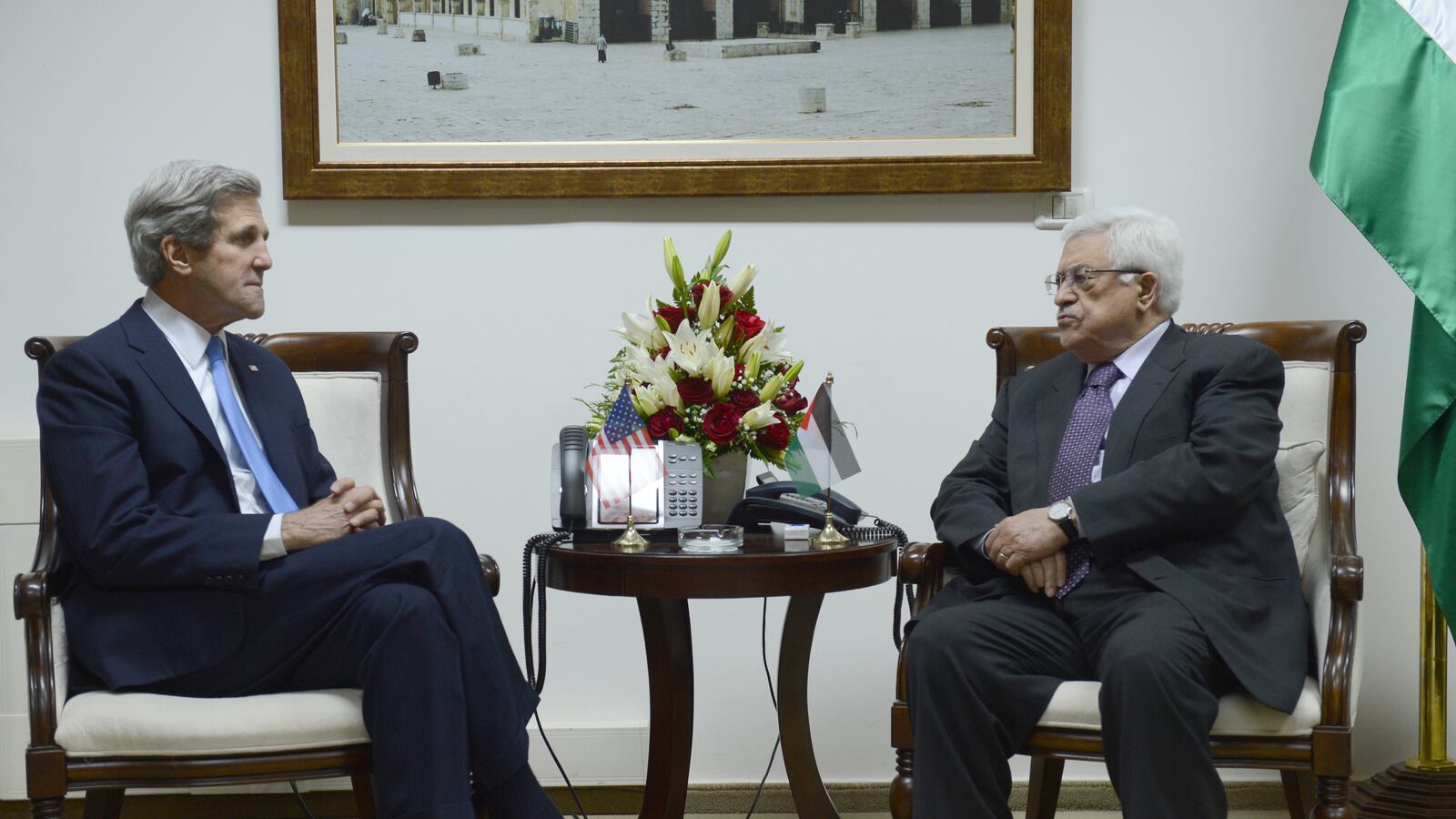This week, U.S. Secretary of State John Kerry wrapped up a three-day diplomatic trip to Israel and Palestine that he deemed “very constructive." But how constructive will his proposed initiatives really be for Palestinians and their cause of liberation from occupation? The early indications are: not very.

In order for talks to resume, Palestinian Authority President Mahmoud Abbas has requested a complete freeze on Israeli settlement construction, the release of 123 political prisoners who have been held since the Oslo Accords in 1993, and for Israel to present a map showing the proposed borders. These requests seem unlikely to be met. During his recent trip to the region, President Barack Obama rejected the notion of a settlement freeze as a precondition to talks; Israel hasn't in the past released prisoners without some sort of deal (often an exchange wherein Palestinian prisoners are subsequently re-arrested); and Israeli sources restated to Haaretz this morning their longstanding objections to talking borders outside of negotiations for a comprehensive agreement.
Meanwhile, settlement construction continues apace in both the West Bank and Israeli-annexed East Jerusalem, causing many Palestinians to give up on a two-state framework. “If the two-state solution was just in the first place, these kinds of settlements would still kill it,” said Saleh, a Palestinian activist who prefers not to give a last name. He told me he advocates for a one-state solution with equal rights for Israelis and Palestinians, and ideally the right of return for Palestinians to their communities inside of Israel.
In an attempt to deal with the seeming mutual exclusivity of the requests of both sides, Kerry has also set forth economic initiatives for the Palestinian Authority. Although he has not specified what these initiatives will be, he has indicated that they will involve lifting some of the red tape that hinders Palestinian commerce.
Some Palestinians suspect that this kind of economic development at best this may be Kerry’s easy substitute for an increasingly improbably political solution, and at worst is a force for normalizing Israel’s occupation of the West Bank. “We have an occupation here,” Nour, a student at Birzeit University who prefers not to give her last name, told me. “And it isn’t going to go away with more aid money alone.”
Ultimately, no matter how much Kerry “lifts the red tape” hindering commerce in Palestine, Israel still controls the purse strings, trade and movement for the “state” of Palestine. That's why the World Bank and International Monetary Fund say the best thing that could happen for the Palestinian economy would be an end to Israel's occupation. But that's precisely the economic fix that Kerry can't deliver.






